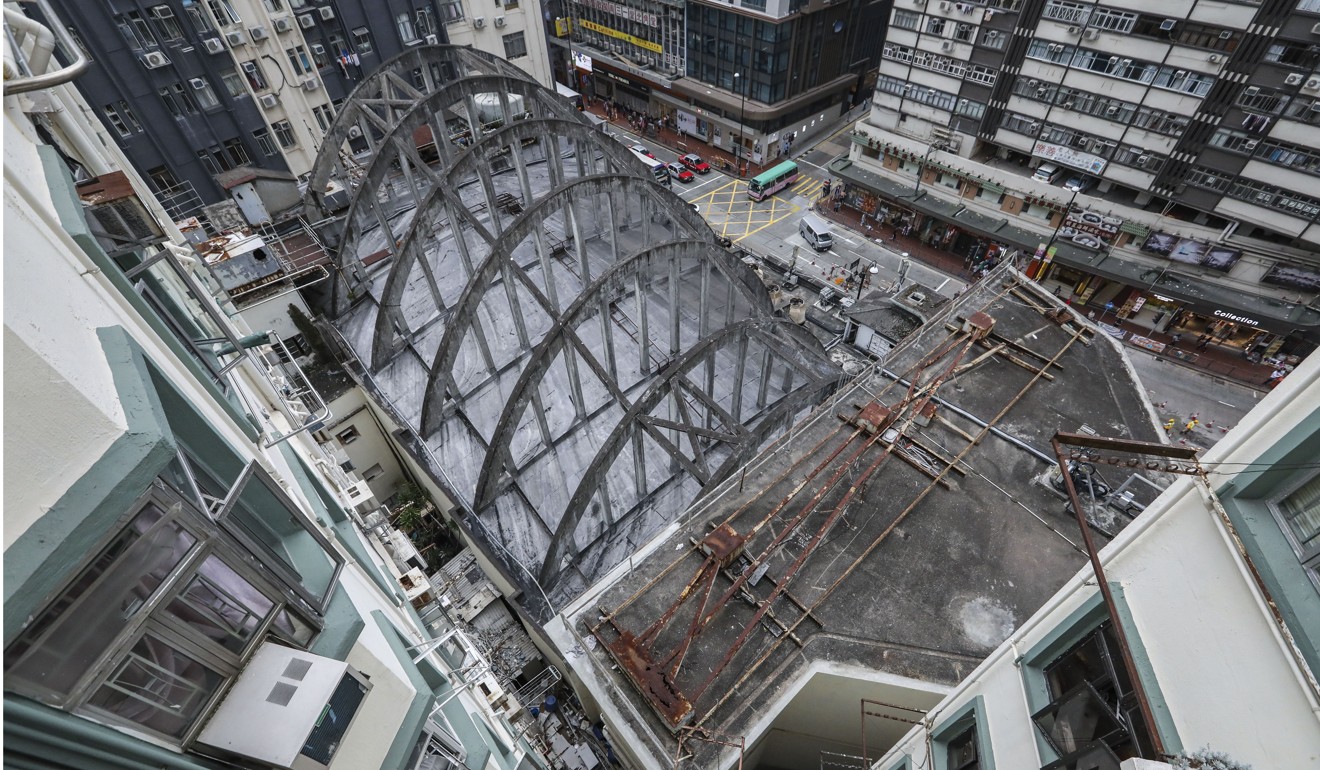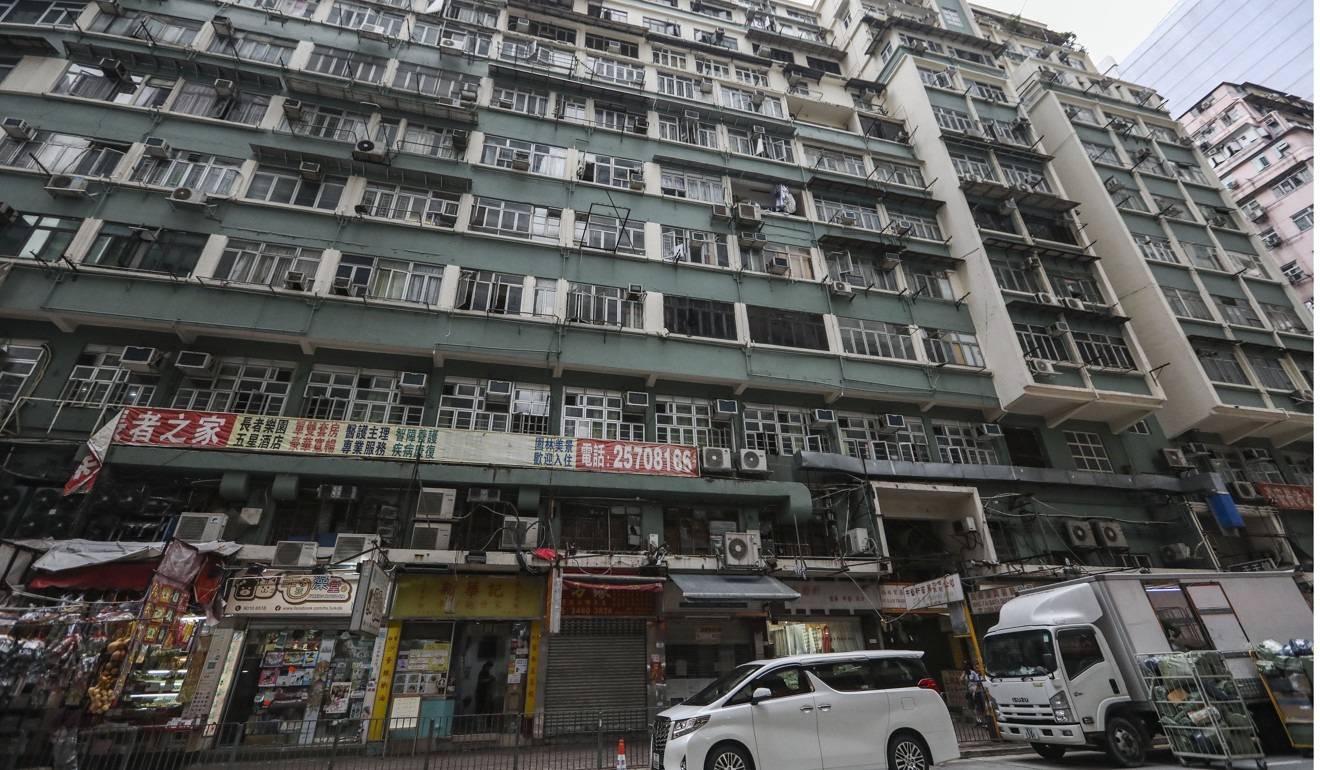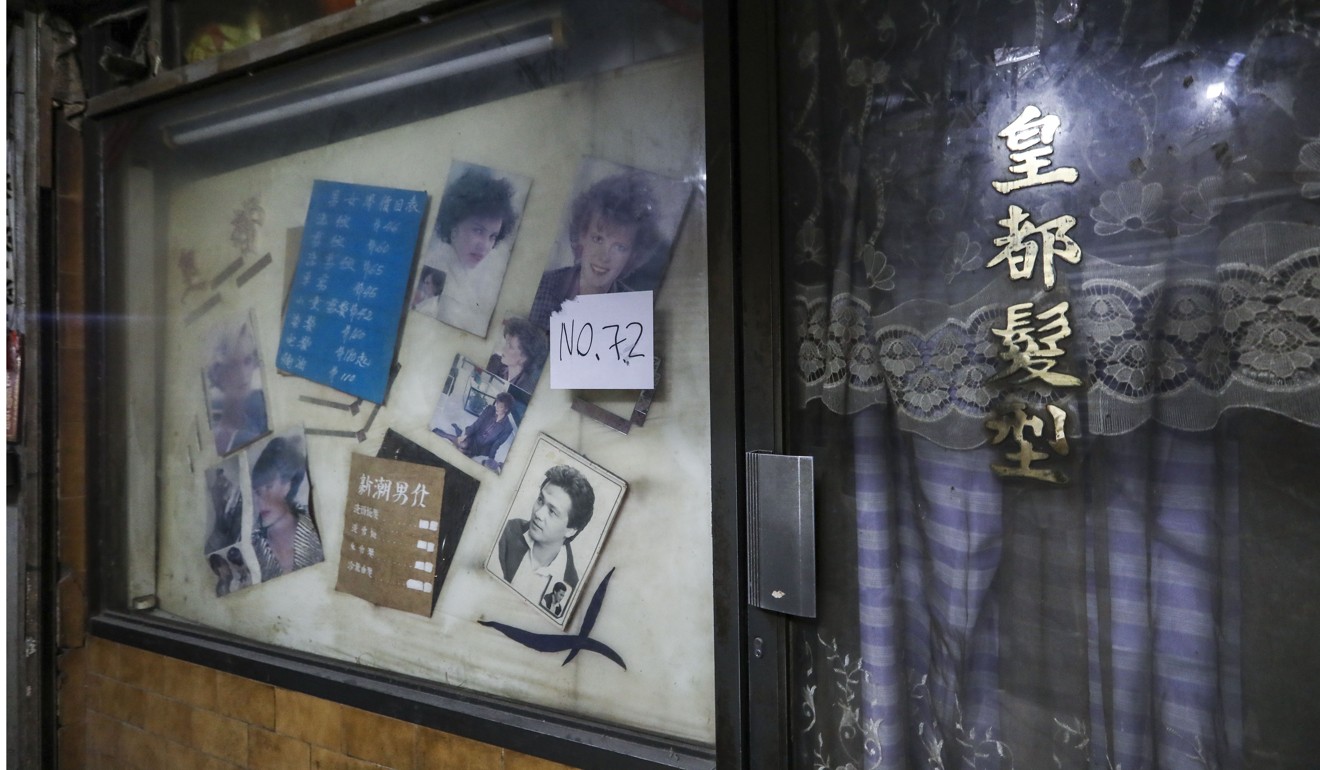
Hopes rise for Hong Kong’s historic State Theatre with developer New World aiming to save ‘relevant part’ of complex
- New World Development applies for compulsory sale order regarding State Theatre Building
- Firm has not revealed detailed redevelopment plan for complex
Hopes have been raised that a historic theatre in North Point might be saved from the wrecking ball with a property developer saying it is of a view to conserve parts of the six-decade-old complex if it is redeveloped.
New World Development, which was considering a conservation project for the first time, on Monday applied to the Lands Tribunal for a compulsory sale order regarding the State Theatre Building.
The complex consists of the State Theatre – a grade one historic structure now used as a snooker parlour – a shopping arcade and residential block.
It is one of the last post-war stand-alone theatre structures in the city and is easily recognisable from a series of concrete arches over its roof from which the ceiling is suspended. Originally known as the Empire Theatre when it opened in 1952, the 1,400-seat facility was renamed in 1959 to its current title.

However, it did not reveal a detailed redevelopment plan for the complex on the corner of King’s Road and Tin Chong Street.
Conservationists urge rule change to save historic theatre
The spokesman said that because legal proceedings for a compulsory sale were afoot, the group was “not in a position to confirm any development plan until it has acquired 100 per cent ownership and conducted thorough inspection of the present condition and structure”.
In general, a developer could seek compulsory sale of a building after acquiring 80 per cent of the property interests in it.
The spokesman added that while it was “premature” to discuss any future development plan, the group would “actively consider how to preserve the essence of the former State Theatre” after it had successfully unified the ownership.

In addition, New World said it would coordinate with local groups to carry out a series of community programmes to increase public understanding of North Point’s history and the significance and cultural value of the theatre.
Those programmes would include talks, guided tours and activities to collect oral history and memories of the area and theatre.
Walk in Hong Kong, a heritage tour agency involved in a campaign to save the theatre, welcomed the latest move.
Fears of demolition for historic State Theatre building in North Point
“[Walk in Hong Kong] urges New World Development Group to make the conservation of the landmark a reality, and that it will do so by following the highest international heritage conservation standards,” the agency said in a post on its Facebook page.
It said the building’s iconic “arch bridge” roof structure and internal two-level structure should be kept, and hoped it would be “a place to be enjoyed by many” in the future.
Professor Ho Puay-peng, a former Antiquities Advisory Board member, also welcomed the move.

The ‘pink house’ on The Peak faces an uncertain future
Lee Ho-yin, head of architectural conservation programmes at the University of Hong Kong, said a better approach to conservation would be to link up a redevelopment project with the city’s economic policy, including the creative industry or innovation and technology.
Lee suggested that instead of redeveloping the theatre complex into flats, it could be converted into office units for start-ups or tech companies.
Among renowned artists to have performed in the theatre were soprano Barbara Fei Ming-yi and Taiwanese diva Teresa Teng. After the theatre closed in 1997, it was converted into a snooker parlour in 1999.

